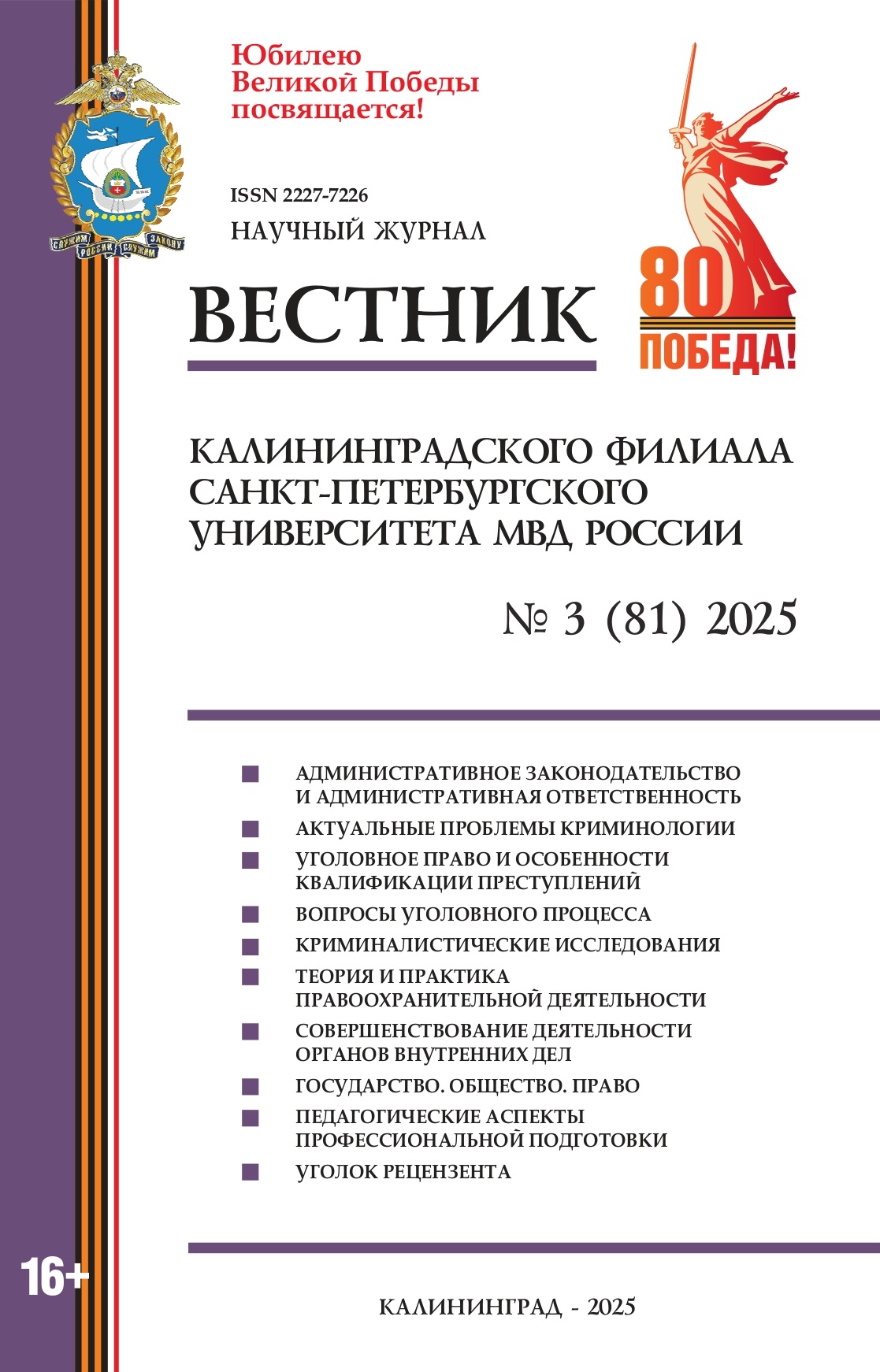graduate student
Russian Federation
Introduction. Modern education is developing in the context of a large-scale digital transformation, which changes the role of the teacher and imposes new requirements on his/her professional activity. For the successful functioning of educational organizations and ensuring the proper quality of graduate training, it is currently necessary for teachers to have digital competencies. At the same time, there remains a contradiction between the expectations of the state and society and the actual level of digital skills of teachers, including in universities of the Ministry of Internal Affairs of Russia. Methods. To achieve the stated goals, such theoretical research methods as analysis, synthesis, and generalization were used. They made it possible to systematically understand the problem of digital competencies of higher education teachers in the context of digitalization of education. Among the empirical methods, a questionnaire turned out to be in demand. Representatives of the teaching staff of the Saint Petersburg University of the Ministry of the Interior of Russia answered the questions we formulated. The survey results provided a factual basis for determining the level of digital competence of teachers and identifying their motivation to develop the relevant competencies. Such an integrated methodological approach made it possible to comprehensively consider the problem under study. Results. The study showed that the level of digital competence of teachers remains insufficiently high: many limit themselves to using a minimum set of tools, while they are characterized by low motivation to develop digital competencies. Foreign practices demonstrate a systematic approach to modeling digital competencies of a teacher, while in Russia there is no single regulatory document that would establish their list. The need was identified to develop theoretically substantiated models of digital competencies of a teacher of a higher educational institution of the Ministry of Internal Affairs of Russia, taking into account the specifics of his activities and the requirements for the use of digital educational content
Digitalization of education, competency-based approach, digital competencies, higher education teacher, teaching staff, educational organization, Ministry of the Interior of Russia, digital educational content








